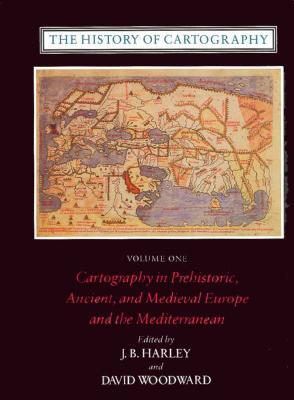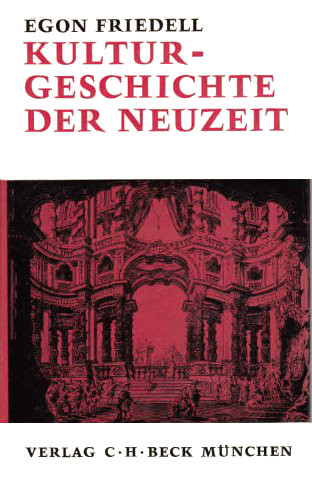J. B. Harley, David Woodward (eds.): The History of Cartography (1987–)
Filed under book | Tags: · cartography, data visualisation, history, mapping

The monumental History of Cartography is an unprecedented survey of the development of cartography both as a science and an art. This essential reference presents the enormous value of maps to societies worldwide and explores the many ways they have been used to depict the earth, sky, and cosmos from ancient times to the present. The series is both a work of reference (comprehensive in coverage and rich in bibliographies, illustrations and other reader aids) and of scholarly interpretation (authoritative, factually up-to-date, revisionist and espousing deliberately broad terms of reference).
Volume 1 (1987): Cartography in Prehistoric, Ancient, and Medieval Europe and the Mediterranean.
Volume 2, Book 1 (1992): Cartography in the Traditional Islamic and South Asian Societies.
Volume 2, Book 2 (1994): Cartography in the Traditional East and Southeast Asian Societies.
Volume 2, Book 3 (1998): Cartography in the Traditional African, American, Arctic, Australian, and Pacific Societies.
Volume 3 (2007): Cartography in the European Renaissance [In two books].
Volume 4 (forthcoming, edited by Matthew Edney and Mary S. Pedley): Cartography in the European Enlightenment.
Volume 5 (forthcoming, edited by Roger Kain): Cartography in the Nineteenth Century.
Volume 6 (forthcoming, edited by Mark Monmonier): Cartography in the Twentieth Century.
Publisher University of Chicago Press, 1987-
Open Access
c5000 pages
The History of Cartography Project
Download Volumes 1-3 (PDF chapters, from the publisher)
Comment (0)Egon Friedell: A Cultural History of the Modern Age (1927–) [DE, EN]
Filed under book | Tags: · aesthetics, art history, cultural history, history, modernity, politics, religion

Austrian essayist, cabaret performer, and amateur cultural historian Egon Friedell is best known for his brilliant, playful, and stimulating magnum opus, A Cultural History of the Modern Age (1927-31), written under the influence of Oswald Spengler and Jacob Burckhardt. He hoped for a rebirth of Western culture; the Modern Age, which was born from the Great Plague of the fourteenth century, has come to its end. At the eve of World War II, Friedell committed suicide by jumping from a window of his apartment. The German writer Thomas Mann ranked Friedell as one of the greatest stylists of the German language.
A Cultural History of the Modern Age, inspired by H.G. Well’s The Outline of History (1920), is dedicated to Max Reinhardt. Its first volume deals with Renaissance and Reformation, the second Baroque, Enlightenment and the French Revolution, and the third part Romanticism, Liberalism, Imperialism, and Impressionism. Friedell’s view is subjective and intuitive – all history is saga and myth and it is nothing more than a difference in degree between historian and poet. “All the classifications man has ever devised are arbitrary, artificial, and false,” Friedell wrote, “but simple reflection also shows that such classifications are useful, indispensable, and above all unavoidable since they accord with an innate aspect of our thinking.” Following the Hegelian lines of though, Friedell sees his subject basically as a the process of spiritual history. Oswald Spengler’s (The Decline of the West, 1918-1922) pessimism and atheism he rejects. From the English writer, historian, and critic Thomas Carlyle (1795-1881) Friedell adopted the romantic “great man” theory of history, the hero-worship, totally ignoring its ominous connection with the political reality of his day. Every era and every generation has according to Friedell its own hero, a genius, who personifies the Zeitgeist, the spirit of the age. Nietzsche was for Friedell the epitome of the pre-WW I era. (from Petri Liukkonen’s short biography of Friedell)
German edition
Publisher Beck, Munich, 1927, 1928, 1931
This edition, Zweitausendeins, Frankfurt am Main, 2009, 1335 pages
English edition
Translated by Charles Francis Atkinson
With an Introductory Essay by Alfred Polgar
Publisher Alfred A. Knopf, 1930, 1931, 1932
Fifth printing, 1953 (Vol 1); Third printing, 1954 (Vol 2); First printing, 1932 (Vol 3)
353 + 457 + 489 pages
via hz40lat46
Review (of Vol 1, Crane Brinton, Speculum, 1953)
Review (of Vols 1-2, International Journal of Ethics, 1932)
Review (of Vol 2, Eli Siegel, Scribner’s Magazine, 1931)
Review (of Vol 3, Robert Briffault, Scribner’s Magazine, 1932)
Review (of Vol 1, C. Hartley Grattan, The Forum, 1930)
Review (of Vol 1, David Owen, The Saturday Review, 1930)
Review (of Vol 2, The Saturday Review, 1932)
Review (of Vol 3, Alfred M. Frankfurter, The Bookman, 1932)
Wikipedia (DE)
Kulturgeschichte der Neuzeit; Kulturgeschichte Ägyptens (German, 1927-31/2009, at Archive.org)
A Cultural History of the Modern Age, Volume I, Volume II, Volume III (English, trans. Charles Francis Atkinson, 1930-32, no OCR)
Richard H. Grove: Green Imperialism: Colonial Expansion, Tropical Island Edens and the Origins of Environmentalism, 1600-1860 (1995)
Filed under book | Tags: · 1600s, 1700s, 1800s, colonialism, environment, history, nature

“Green Imperialism is the first book to document the origins and early history of environmentalism, concentrating especially on its hitherto unexplained colonial and global aspects. It highlights the significance of Utopian, Physiocratic, and medical thinking in the history of environmentalist ideas. The book shows how the new critique of the colonial impact on the environment depended on the emergence of a coterie of professional scientists, and demonstrates both the importance of the oceanic island “Eden” as a vehicle for new conceptions of nature and the significance of colonial island environments in stimulating conservationist notions.”
Publisher Cambridge University Press, 1995
Studies in Environment and History series
ISBN 0521565138, 9780521565134
540 pages
Reviews: Elvin (London Review of Books, 1995), Carruthers (H-Africa, 1996), Rangarajan (Telegraph, 1995), Harrison (British Journal for the History of Science, 1996), Hughes (Journal of World History, 1996), Harrison (British Journal for the History of Science, 1996), MacKenzie (International History Review, 1996), Luckin (Reviews in History, 1996).
PDF (28 MB, updated on 2015-2-21)
Comment (0)
